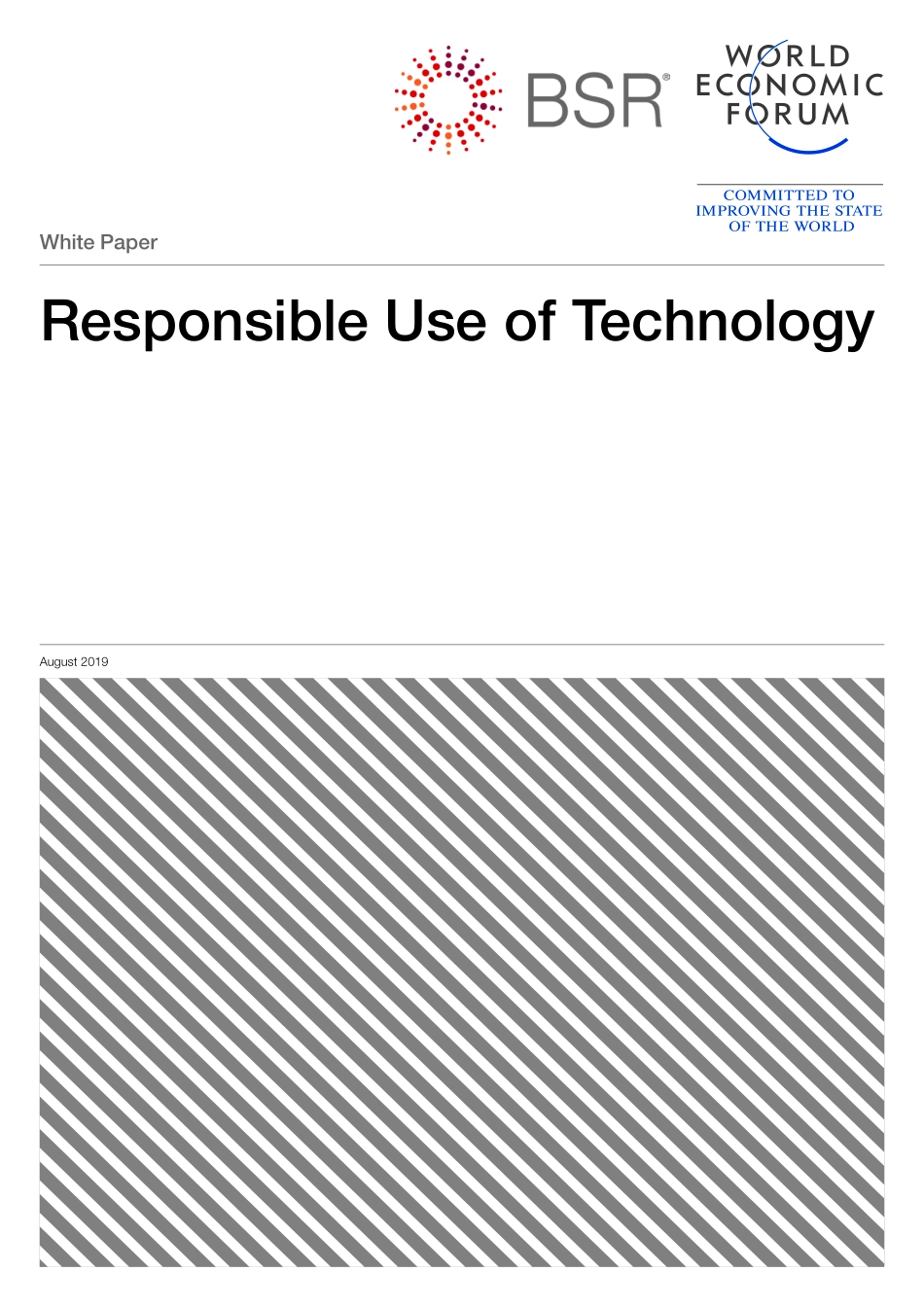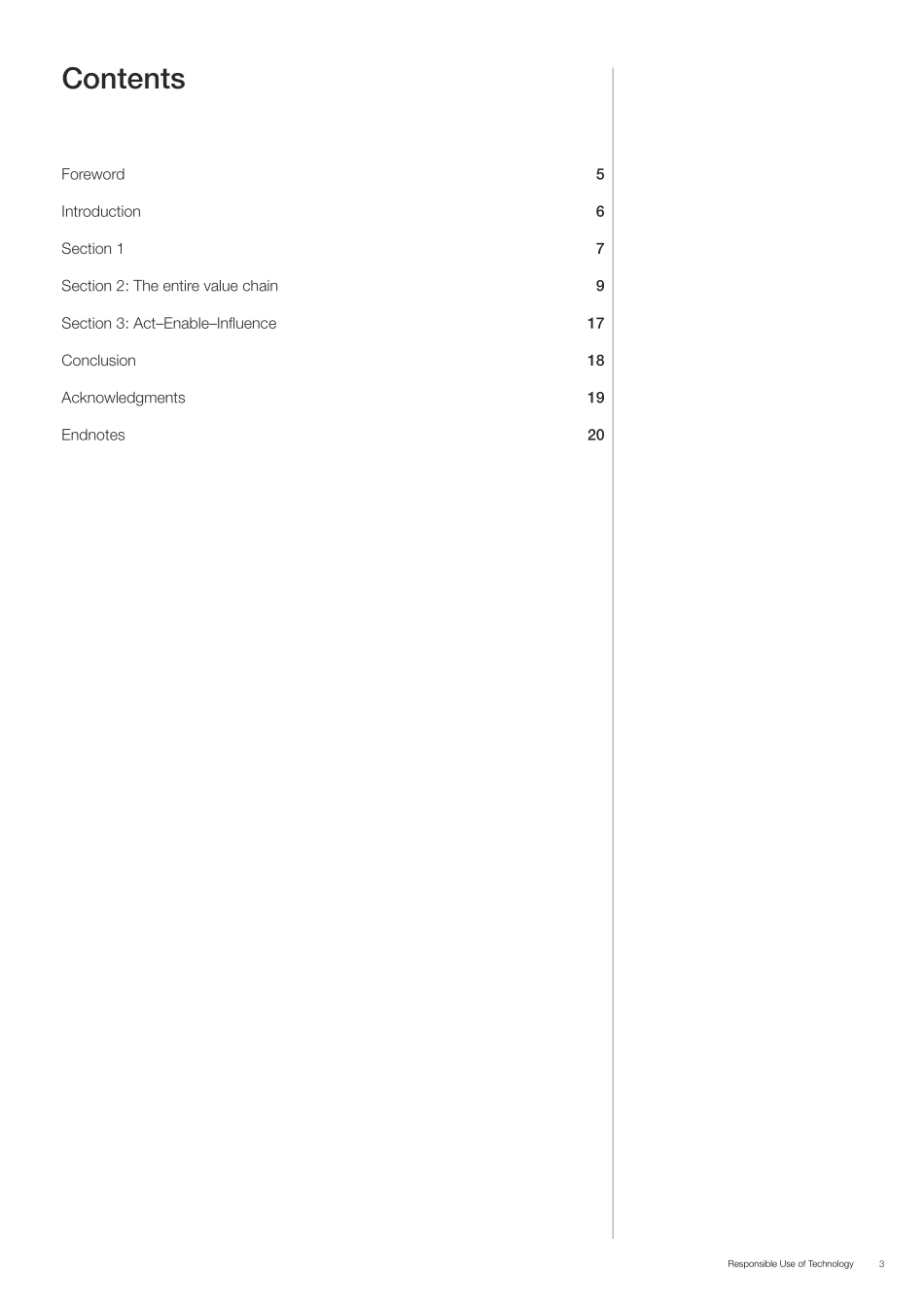White PaperResponsible Use of Technology August 2019World Economic Forum91‑93 route de la CapiteCH‑1223 Cologny/GenevaSwitzerlandTel.: +41 (0)22 869 1212Fax: +41 (0)22 786 2744Email: contact@weforum.orgwww.weforum.org© 2019 World Economic Forum. All rights reserved. No part of this publication may be reproduced or transmitted in any form or by any means, including photocopying and recording, or by any information storage and retrieval system.3Responsible Use of Technology ContentsForeword 5Introduction 6Section 1 7Section 2: The entire value chain 9Section 3: Act–Enable–Influence 17Conclusion 18Acknowledgments 19Endnotes 204Responsible Use of Technology 5Responsible Use of Technology ForewordThe Centre for the Fourth Industrial Revolution Global Network was launched early 2017 to co‑create forward‑looking policy frameworks and governance protocols, with broad multistakeholder engagement and buy‑in, to accelerate the adoption of emerging technologies in the global public interest. The centre’s work, in areas such as artificial intelligence and machine learning, blockchain, data policy, and internet of things (IoT), is driven by human‑centricity, actionability, transparency and ethics.Today, the pervasive use of technology has triggered a spirited debate on how new and disruptive technologies should be managed and governed. In particular, as government struggles to keep up with the unprecedented speed and scale of technological change, what is the responsibility of companies to self‑regulate the technology they are designing and deploying?This urgent and important challenge requires the engagement of stakeholders across the whole technology value chain, from the initial design and development to the sale of technology and its ultimate end use. Additional urgency is driven by the rise in employee activism on the ethical use of technology, as well as increased consumer awareness and concern that is beginning to affect the bottom line. In our numerous conversations with c‑suite leaders across the technology industry, we’ve learned that many companies lack even a basic framework for grappling with how their products are designed and who they should be sold to – and, in absence of a systematic approach, many of them are defaulting to reactive one‑off decisions that are drawing increasing scrutiny.To that end, the centre is developing a practical guide that companies and founders anywhere in the world can use to ensure that ethical considerations are integrated at key points in the product life cycle. It will include an evaluation schema, a catalogue of best practices, and a compilation of case studies – to be created through consultation with practitioners from business, government and civil society through a series of workshops across the Centre for the Fourth Industrial Revolution Global Network. The intent is to help corporate users address ethical i...


